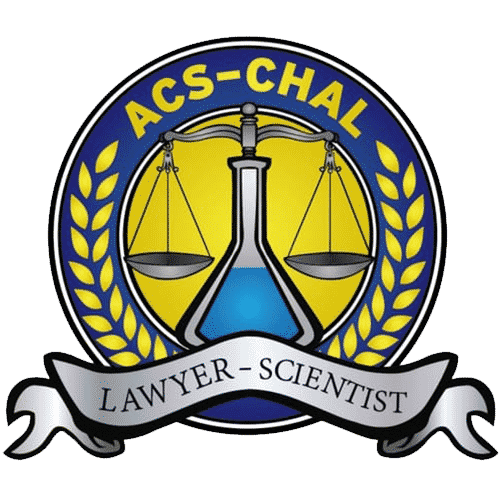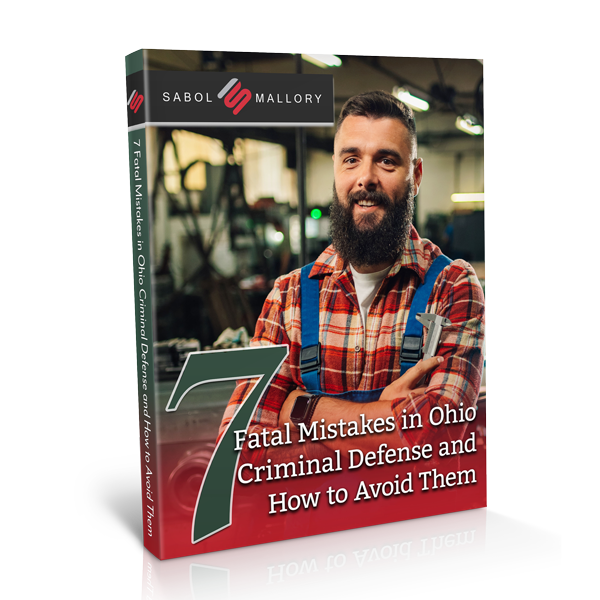Columbus, OH Meth Manufacturing Lawyer
Do You Need Legal Help?
Do You Need Legal Help?








Dan is the first attorney in Ohio to be both board certified in criminal trial law by the National Board of Trial Advocacy and be designated as a Lawyer Scientist by the American Chemical Society.

Chase Mallory is a firm founder whom has tried over 40 cases and conducted more than 100 suppression hearings. He is a founding member of the DUI Defense Lawyers Association
Meet the lawyers who make up the legal team at Sabol Mallory LLC. Read their individual bios and get to know more about their education, experience and accolades.
Learn more about our teamLearn what our clients have to say about the work of Sabol Mallory. If you have any questions or need legal help for a criminal charge, please reach out to us right away.


Learn what you should and shouldn't be doing to help your OVI case.
The Ohio Attorney General states on its website that methamphetamine, more commonly known as meth, “is a potent and highly addictive stimulant typically produced from over-the-counter cold medications and many other chemicals, including acids and rubbing alcohol” that is sold illegally in pill form, capsules, powder and chunks. “The use of so many toxic chemicals in making meth unleashes dangerous airborne toxins; the drug’s unstable production can lead to fires and explosions,” the attorney general states.
The Attorney General says that its office, through its Bureau of Criminal Investigation, assists local law enforcement in fighting meth production and distribution by conducting safety and awareness training, coordinating and conducting training for law enforcement personnel, responding to clandestine drug lab scenes, investigating clandestine labs, and providing expert testimony in court. The Ohio Department of Transportation further notes that meth “cooking” leaves behind 5-7 pounds of chemical waste for each pound of meth made. These wastes are considered hazardous wastes and must be cleaned up by a trained Hazardous Waste Response Team.

Were you arrested for allegedly manufacturing methamphetamine in Columbus, Dublin, Westerville or another community in Franklin County, Ohio? It will be critical for you to seek legal representation right away so you can have the best possible chance of overcoming your criminal charges.
Sabol | Mallory has attorneys recognized by several state and national organizations, and we can fight to help you avoid some of the costliest penalties for a meth manufacturing crime. Call (614) 300-5088 or contact us online to have our firm review your case and answer all of your legal questions during a free consultation.
Ohio Revised Code § 2925.04 is the state law relating to the illegal manufacture of drugs, although the title also includes references to illegal cultivation of marihuana and methamphetamine offenses. Ohio Revised Code § 2925.04(A) plainly states that no person can knowingly cultivate marihuana or knowingly manufacture or otherwise engage in any part of the production of a controlled substance.
Ohio Revised Code § 2925.04(C)(3) states that when the drug involved in the violation of Ohio Revised Code § 2925.04(A) is methamphetamine, the penalty for the violation shall be determined as follows:
● If the drug involved in the violation is methamphetamine, illegal manufacture of drugs is a second-degree felony, and, subject to Ohio Revised Code § 2925.04(E), the court must impose a mandatory prison term on the offender determined in accordance with this division. Except as otherwise provided in this division, the court must impose as a mandatory prison term a second-degree felony mandatory prison term that is not less than three years. If the alleged offender previously has been convicted of or pleaded guilty to a violation of Ohio Revised Code § 2925.04(A), a violation of Ohio Revised Code § 2919.22(B)(6) (endangering children), or a violation of Ohio Revised Code § 2925.041(A) (illegal assembly or possession of chemicals for manufacture of drugs), the court must impose as a mandatory prison term a second-degree felony mandatory prison term that is not less than five years.
● If the drug involved in the violation is methamphetamine and if the offense was committed in the vicinity of a juvenile, in the vicinity of a school, or on public premises, illegal manufacture of drugs is a first-degree felony, and, subject to Ohio Revised Code § 2925.04(E), the court must impose a mandatory prison term on the alleged offender determined in accordance with this division. Except as otherwise provided in this division, the court must impose as a mandatory prison term a first-degree felonymandatory prison term that is not less than four years. If the alleged offender previously has been convicted of or pleaded guilty to a violation of Ohio Revised Code § 2925.04(A), a violation of Ohio Revised Code § 2919.22(B)(6) (endangering children), or a violation of Ohio Revised Code § 2925.041(A) (illegal assembly or possession of chemicals for manufacture of drugs), the court must impose as a mandatory prison term a first-degree felony mandatory prison term that is not less than five years.
Ohio Revised Code § 2925.04(D) further provides that in addition to any prison term authorized or required by Ohio Revised Code § 2925.04(C) and Ohio Revised Code § 2929.13 and Ohio Revised Code § 2929.14 and in addition to any other sanction imposed for the offense under this section or Ohio Revised Code § 2929.11 to Ohio Revised Code § 2929.18, the court that sentences an offender who is convicted of or pleads guilty to a violation of Ohio Revised Code § 2925.04(A) can suspend the offender’s driver’s or commercial driver’s license or permit in accordance with Ohio Revised Code § 2925.03(G). However, if the alleged offender pleads guilty to or is convicted of a violation of Ohio Revised Code § 4511.19 or a substantially similar municipal ordinance or the law of another state or the United States arising out of the same set of circumstances as the violation, the court must suspend the offender’s driver’s or commercial driver’s license or permit in accordance with Ohio Revised Code § 2925.03(G).
If applicable, the court also must do the following:
● If the violation of Ohio Revised Code § 2925.04(A) is a felony of the first, second, or third degree, the court must impose upon the alleged offender the mandatory fine specified for the offense under Ohio Revised Code § 2929.18(B)(1) unless, as specified in that division, the court determines that the alleged offender is indigent.
● If the alleged offender is a professionally licensed person, the court immediately must comply with Ohio Revised Code § 2925.38.
Under Ohio Revised Code § 2925.04(E), notwithstanding the prison term otherwise authorized or required for the offense under Ohio Revised Code § 2925.04(C) and Ohio Revised Code § 2929.13 and Ohio Revised Code § 2929.14, if the violation of Ohio Revised Code § 2925.04(A) involves the sale, offer to sell, or possession of a schedule I or II controlled substance, with the exception of marihuana, and if the court imposing sentence upon the offender finds that the offender as a result of the violation is a major drug offender and is guilty of a specification of the type described in Ohio Revised Code § 2941.1410(A), the court, in lieu of the prison term otherwise authorized or required, must impose upon the offender the mandatory prison term specified in 2929.14(B)(3).
In addition to illegal manufacture of drugs, another common criminal charge relating to meth manufacturing is Ohio Revised Code § 2925.041, illegal assembly or possession of chemicals for manufacture of drugs. Ohio Revised Code § 2925.041(A) establishes that no person can knowingly assemble or possess one or more chemicals that may be used to manufacture a controlled substance in schedule I or II with the intent to manufacture a controlled substance in schedule I or II.
Ohio Revised Code § 2925.041(B) further provides that in a prosecution for this crime, it is not necessary to allege or prove that the alleged offender assembled or possessed all chemicals necessary to manufacture a controlled substance in schedule I or II. The assembly or possession of a single chemical that may be used in the manufacture of a controlled substance in schedule I or II, with the intent to manufacture a controlled substance in either schedule, is sufficient to violate Ohio Revised Code § 2925.041.
Illegal assembly or possession of chemicals for the manufacture of drugs is a third-degree felony, and, except as otherwise provided in Ohio Revised Code § 2925.041(C)(1) or (2), Ohio Revised Code § 2929.13(C) applies in determining whether to impose a prison term on the alleged offender. If the alleged offense was committed in the vicinity of a juvenile or in the vicinity of a school, illegal assembly or possession of chemicals for the manufacture of drugs is a second-degree felony, and, except as otherwise provided in Ohio Revised Code § 2925.041(C)(1) or (2), Ohio Revised Code § 2929.13(C) applies in determining whether to impose a prison term on the alleged offender.
If the violation of Ohio Revised Code § 2925.041(A) is a felony of the third degree under this division and if the chemical or chemicals assembled or possessed in violation of Ohio Revised Code § 2925.041(A) can be used to manufacture methamphetamine, there either is a presumption for a prison term for the offense or the court shall impose a mandatory prison term on the offender, determined as follows:
● There is a presumption for a prison term for the offense. If the alleged offender two or more times previously has been convicted of or pleaded guilty to a felony drug abuse offense, except as otherwise provided in this division, the court must impose as a mandatory prison term one of the prison terms prescribed for a felony of the third degree that is not less than two years. If the offender two or more times previously has been convicted of or pleaded guilty to a felony drug abuse offense and if at least one of those previous convictions or guilty pleas was to a violation of Ohio Revised Code § 2925.041(A), a violation of Ohio Revised Code § 2919.22(B)(6), or a violation of Ohio Revised Code § 2925.04(A), the court must impose as a mandatory prison term one of the prison terms prescribed for a felony of the third degree that is not less than five years.
● If the violation of Ohio Revised Code § 2925.041(A) is a felony of the second degree under Ohio Revised Code § 2925.041(C) and the chemical or chemicals assembled or possessed in committing the violation may be used to manufacture methamphetamine, the court must impose as a mandatory prison term a second degree felony mandatory prison term that is not less than three years. If the violation of Ohio Revised Code § 2925.041(A) is a felony of the second degree under Ohio Revised Code § 2925.041(C), if the chemical or chemicals assembled or possessed in committing the violation may be used to manufacture methamphetamine, and if the offender previously has been convicted of or pleaded guilty to a violation of Ohio Revised Code § 2925.041(A), Ohio Revised Code § 2919.22(B)(6), or a violation of Ohio Revised Code § 2925.04(A), the court must impose as a mandatory prison term a second degree felony mandatory prison term that is not less than five years.
Under Ohio Revised Code § 2925.041(D), in addition to any prison term authorized by division Ohio Revised Code § 2925.041(C) and Ohio Revised Code § 2929.13 and Ohio Revised Code § 2929.14 and in addition to any other sanction imposed for the offense under this section or Ohio Revised Code § 2929.11 to Ohio Revised Code § 2929.18, the court that sentences an alleged offender who is convicted of or pleads guilty to a violation of this section may suspend the alleged offender’s driver’s or commercial driver’s license or permit in accordance with Ohio Revised Code § 2925.03(G). However, if the alleged offender pleaded guilty to or was convicted of a violation of Ohio Revised Code § 4511.19 or a substantially similar municipal ordinance or the law of another state or the United States arising out of the same set of circumstances as the violation, the court must suspend the alleged offender’s driver’s or commercial driver’s license or permit in accordance with Ohio Revised Code § 2925.03(G). If applicable, the court also must do the following:
● The court must impose upon the alleged offender the mandatory fine specified for the offense under Ohio Revised Code § 2929.18(B)(1) unless, as specified in that division, the court determines that the alleged offender is indigent.
● If the alleged offender is a professionally licensed person or a person who has been admitted to the bar by order of the supreme court in compliance with its prescribed and published rules, the court shall comply with Ohio Revised Code § 2925.38.
If the sentencing court suspends the alleged offender’s driver’s or commercial driver’s license or permit under this section in accordance with Ohio Revised Code § 2925.003(G), the alleged offender can request termination of, and the court may terminate, the suspension of the offender in accordance with that division.
Meth Manufacturing Penalties in Ohio
Ohio clearly has some strict sentencing standards when it comes to meth offenses. In general, an alleged offender could be facing the possibility of one of the following sentences if convicted:
● Third-Degree Felony — Up to five years in prison and/ore a fine of up to $10,000
● Second-Degree Felony — Up to eight years in prison and/ore a fine of up to $15,000
● First-Degree Felony — Up to 11 years in prison and/ore a fine of up to $20,000
Keep in mind that Ohio state law specifies mandatory minimums for these offenses as well.

Do I Need a Lawyer if I was Arrested?
Choosing a Criminal Defense Attorney
Should I Just Plead Guilty?
Known Meth Lab Locations | Summit County Sheriff — View a website with the dates and addresses of known meth lab locations in Ohio. According to the website, Summit County had no seizures of clandestine methamphetamine lab sites in 2000, but dismantled 16 lab sites in 2001, dismantled 22 lab sites in 2002, dismantled 60 clandestine lab sites in 2003, dismantled 126 sites in 2004, dismantled 115 sites in 2005, and dismantled 57 sites in 2006 to have a reduction of just over 50 percent. The State of Ohio observed a reduction of approximately 40 percent.
Five-Year, Instead of Three-Year, Prison Sentence Applies to Certain Illegal Drug Makers — View a Court News Ohio story about an Adams County man who received a five-year sentence for a third-degree felony although another statute capped his sentence at three years. The Ohio Supreme Court ruled that a 2006 law classifying illegal drug manufacturing as a third-degree felony and setting certain penalties constituted a “special provision” in the Ohio Revised Code and prevailed over “general provisions” of a 2011 criminal sentencing overhaul, which reduced most third-degree felony sentences to three years. Darian Pribble was convicted in Adams County in 2017 of the illegal assembly or possession of chemicals for the manufacture of methamphetamine, but two prior drug convictions, including one for drug manufacturing, led to him being sentenced to five years in prison under a statutory “third-strike” provision. In the Supreme Court’s lead opinion, Justice Sharon L. Kennedy wrote that when two laws conflict, the special provision prevails over the general provision.
If you were arrested for allegedly manufacturing meth in Columbus or a surrounding area of Franklin County, you are going to need to get yourself a skilled criminal defense lawyer without delay. Make sure that you speak to Sabol | Mallory.
Our firm will work tirelessly to help you overcome your criminal charges and move on with your life. You can have us provide a complete evaluation of your case as soon as you call (614) 300-5088 or contact us online to schedule a free consultation.
![]()
Sabol Mallory did an amazing job. I was very pleased with the outcome. They returned my calls and always went over everything with me. I would HIGHLY recommend them.